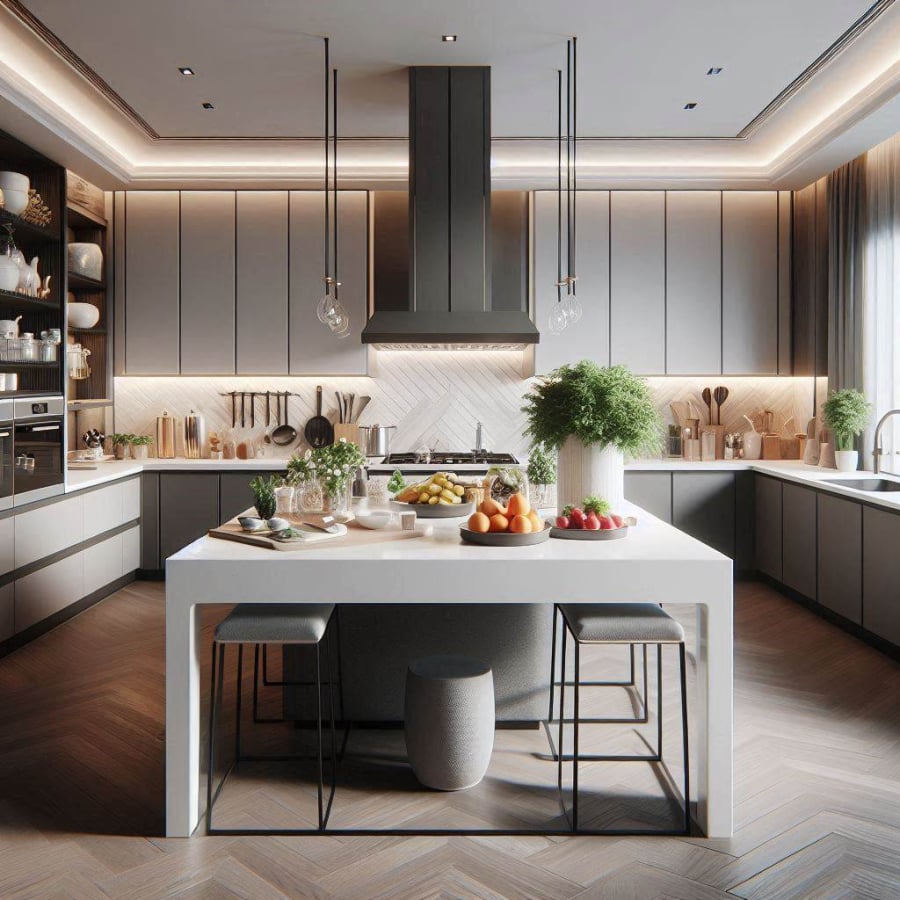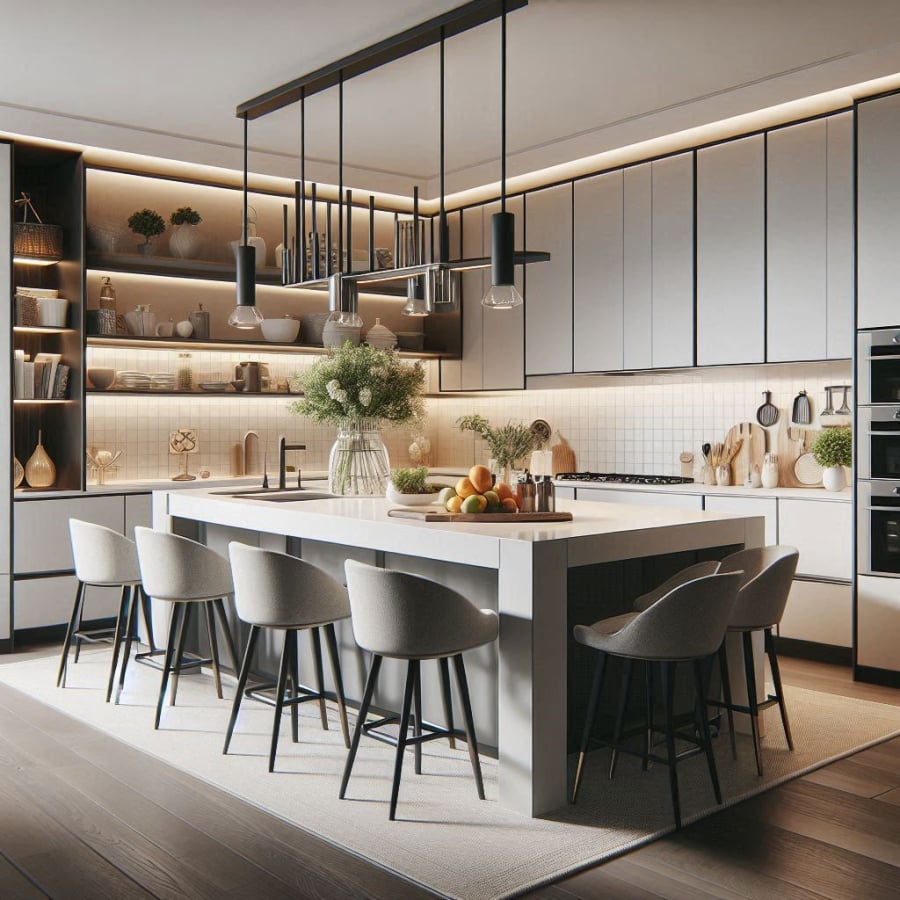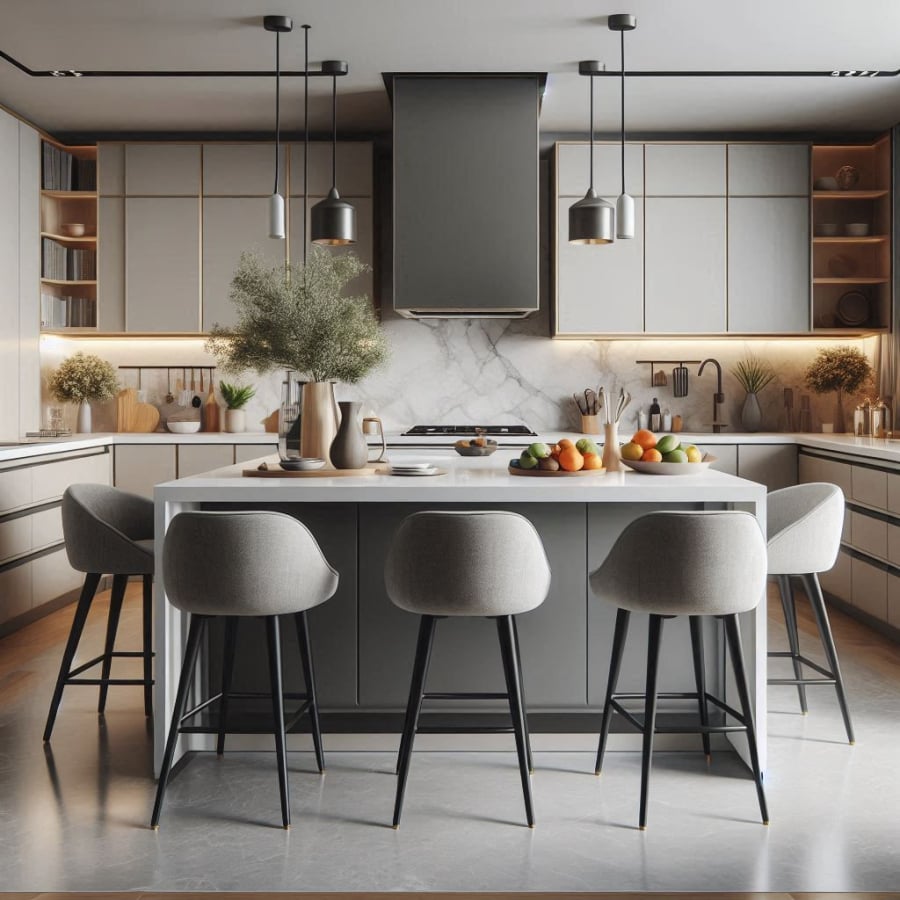Avoid Placing the Kitchen in the Center of the House
The central area of a house is often considered a hub of positive energy. Placing the kitchen in this spot can disrupt the flow of energy and have negative consequences on the health and well-being of the household. To maintain a harmonious and peaceful living environment, it is essential to consider relocating the kitchen to a more suitable area.

The Center of the House is a Gathering Place for Positive Energy
Avoid West-Facing Kitchens
According to Feng Shui principles, the west direction is best avoided when designing a kitchen layout. This is because the west belongs to the element of Metal (Gold) in Feng Shui, which conflicts with the Fire element of the kitchen. Additionally, the setting sun in the west can cause direct sunlight to stream into the kitchen, creating an uncomfortably warm environment. This can negatively impact both the quality of food being prepared and the kitchen’s interior.
Placing the kitchen in the west direction can also pose a threat to the health of family members, increasing the risk of various health issues. Therefore, it is crucial to carefully consider the orientation of the kitchen to maintain a harmonious and healthy family atmosphere.
Avoid Placing the Kitchen Directly Opposite the Main Entrance
In Feng Shui, positioning the kitchen directly opposite the main door is considered inauspicious and is known as “Luo Kou Tao.” This arrangement can lead to financial losses for the homeowner. Such an exposed location not only puts possessions at risk but also endangers the family’s peace and safety, inviting unwanted troubles and calamities. Therefore, when designing the kitchen space, it is essential to pay attention to the layout and create a harmonious and sensible arrangement to ensure the family’s well-being and prosperity.

Placing the Kitchen Opposite the Main Door is Considered Inauspicious
Keep the Kitchen Away from the Ancestral Worship Area
In the principles of Feng Shui, it is advisable to maintain a distance between the kitchen and the ancestral worship area. The smoke and odors associated with cooking can impact the sanctity of the worship area, where deities are revered. This proximity may lead to a sense of disrespect toward the deities, resulting in potential misfortune and challenges for the family. Therefore, when designing living spaces, it is crucial to consider the separation between the kitchen and the worship area to ensure a serene and peaceful home environment.
Avoid Locating the Kitchen Directly Opposite or Below Bedrooms
Feng Shui discourages placing the kitchen directly opposite or below bedrooms. Bedrooms are meant to provide a tranquil and comfortable environment for rest, while kitchens generate a substantial amount of “Fire” energy and cooking odors. The conflict between these two spaces can lead to daily inconveniences and disrupt sleep quality.
Additionally, if the kitchen is situated directly below the bedrooms, the heat and smoke from cooking can rise and cause discomfort and a sense of suffocation. Over time, this can negatively impact the health of the occupants, particularly affecting the heart, liver, and overall mental well-being. Therefore, careful consideration of the kitchen’s location is essential for establishing a harmonious living environment.

Avoid Locating the Kitchen Directly Opposite or Below Bedrooms
Avoid Placing the Kitchen Opposite the Toilet
Feng Shui considers it inauspicious to position the kitchen directly opposite the toilet. This belief stems from the concept of the five elements, where the kitchen represents the Fire element, and the toilet represents the Water element. The conflict between these two elements can create an unfavorable environment in the kitchen.
When the toilet door directly faces the kitchen, bacteria and negative energy can easily enter the cooking space, compromising the hygiene of the area. Consequently, food may be affected, and mealtimes may become less enjoyable. Moreover, this arrangement can negatively impact the health of family members, leading to digestive issues and weakened immune systems. Therefore, when designing living spaces, it is crucial to pay attention to the orientation and location of the kitchen to ensure a healthy and comfortable living environment.
Disclaimer: This information is for reference only and should not be solely relied upon.



































